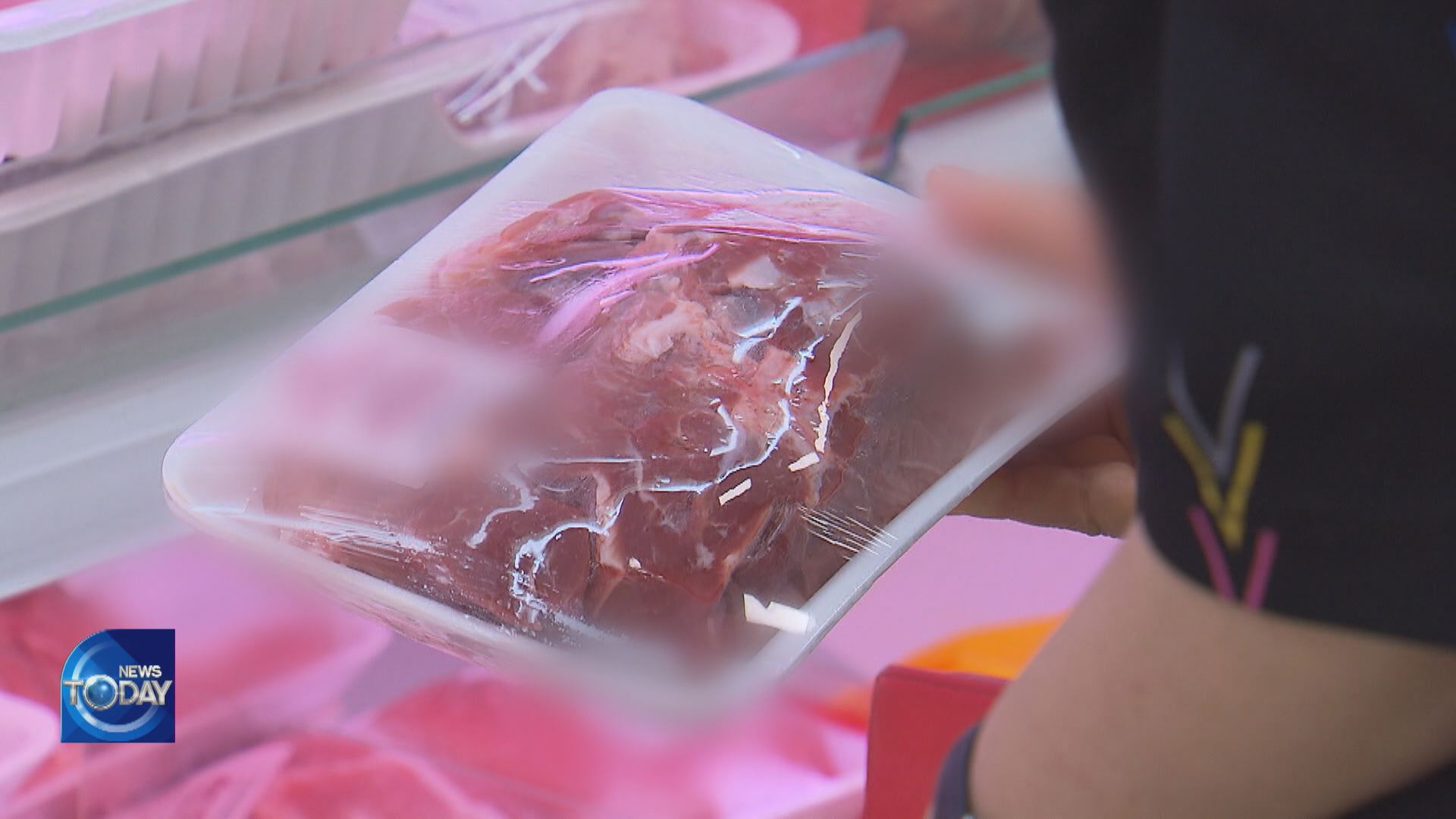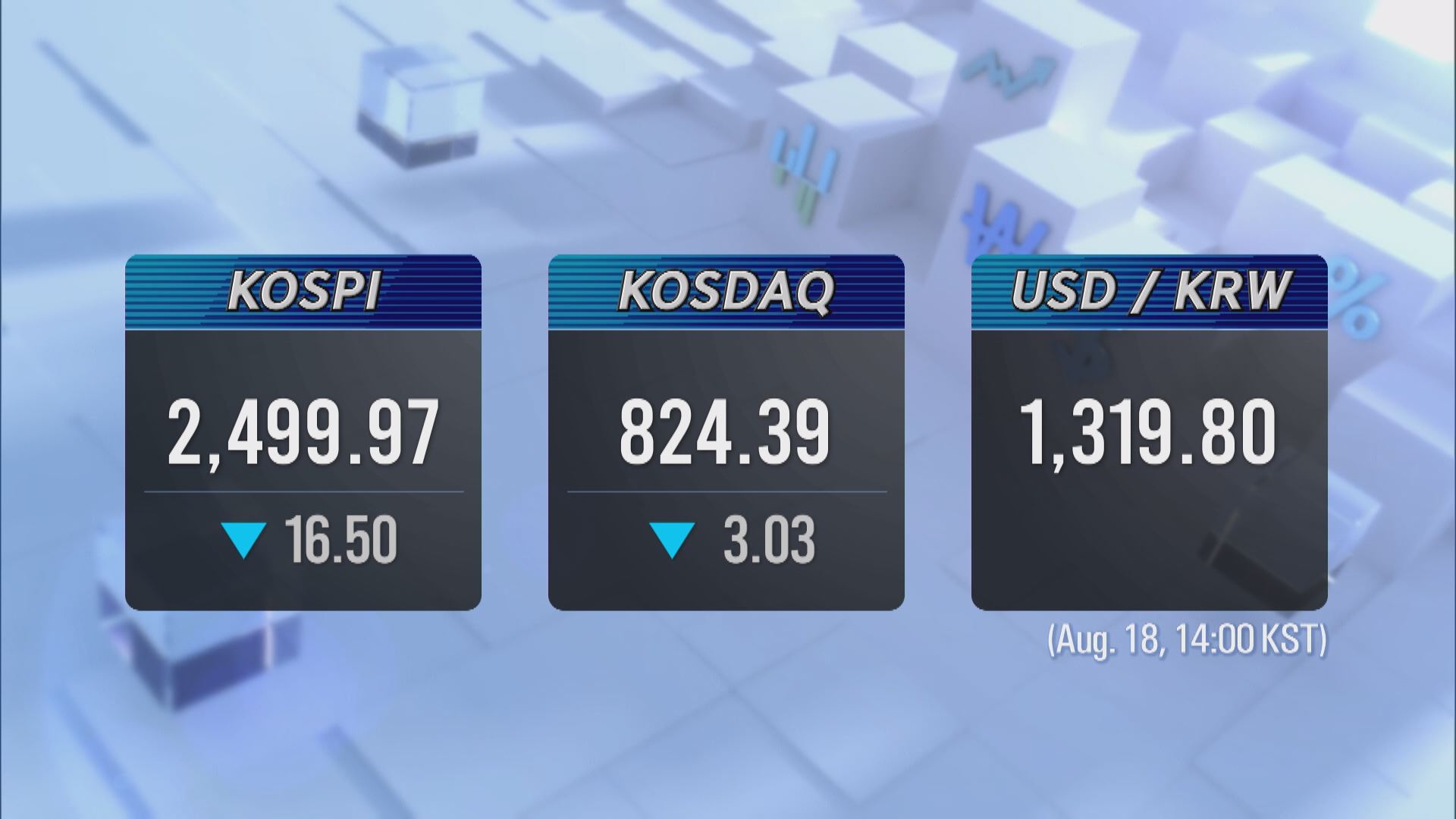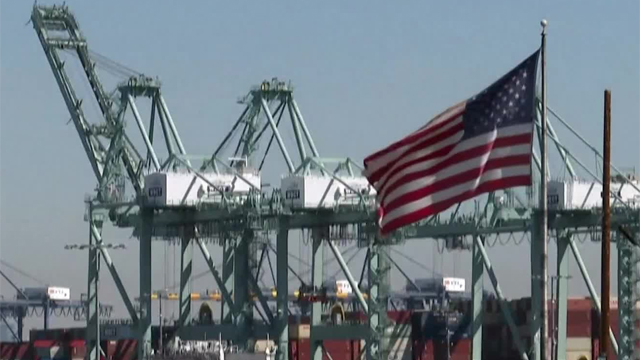COUNTRY OF ORIGIN LABELING VIOLATIONS
입력 2022.08.18 (15:11)
수정 2022.08.18 (16:45)
읽어주기 기능은 크롬기반의
브라우저에서만 사용하실 수 있습니다.
[Anchor Lead]
Imported livestock products are being sold as locally produced goods online. Consumers trying to save what they can in the era of high inflation are targeted in such scams. Concerns mount as meat demand rises in Korea ahead of the Chuseok holiday next month.
[Pkg]
A butcher shop freezer. It's filled with packaging boxes and pig feet. The shop claimed on its homepage that the meat was Korean, but it turned out to be from Spain.
[Soundbite] (Country of Origin Policing Team) : "The imported pigs’ feet have different bone shapes."
They have sold more than 200 kilograms of pig feet disguised as Korean since May.
[Soundbite] (Online Livestock Product Seller (VOICE MODIFIED)) : "I wasn’t able to come to work for a few days. I didn’t mean to deceive people."
Inspectors went to another butcher shop claiming to sell Korean pork at an online site and conducted antibody tests. Antibodies are detected in local pork as Korean pigs are vaccinated against African swine fever. Two lines show up for local pork products. Only one for imported pork without antibody. In this test, the pork produced only one line. They are imported.
[Soundbite] "Where is it from? (From Canada.) They are imported, right? (Yes.)"
Every year Korea sees a steep rise in the number of butcher shops caught selling pork and other livestock products with fake country of origin labeling. In the first six months of this year alone, 220 businesses have been caught, almost 80% of last year's total figures. It is estimated that 70 tons of meat have already been sold. That's enough for 350,000 people at 200 grams per serving. In the Chuseok rush, livestock products account for the largest percentage of items caught violating the country of origin labeling law. Prices of local livestock products have soared this year due to mounting feed cost, while imports have gotten cheaper with no tariffs. Inspectors are likely to find more country of origin violations stemming from such price differences.
[Soundbite] Kim Cheol-ho(Nat’l Agricultural Products Quality Management Service) : "We expect an increase in online sales of agricultural products around Chuseok. Consumers must be suspicious when the prices are much lower than retail prices."
The National Agricultural Products Quality Management Service issued an alert for Chuseok gifts and ritual goods with disguised country of origin labeling.
Imported livestock products are being sold as locally produced goods online. Consumers trying to save what they can in the era of high inflation are targeted in such scams. Concerns mount as meat demand rises in Korea ahead of the Chuseok holiday next month.
[Pkg]
A butcher shop freezer. It's filled with packaging boxes and pig feet. The shop claimed on its homepage that the meat was Korean, but it turned out to be from Spain.
[Soundbite] (Country of Origin Policing Team) : "The imported pigs’ feet have different bone shapes."
They have sold more than 200 kilograms of pig feet disguised as Korean since May.
[Soundbite] (Online Livestock Product Seller (VOICE MODIFIED)) : "I wasn’t able to come to work for a few days. I didn’t mean to deceive people."
Inspectors went to another butcher shop claiming to sell Korean pork at an online site and conducted antibody tests. Antibodies are detected in local pork as Korean pigs are vaccinated against African swine fever. Two lines show up for local pork products. Only one for imported pork without antibody. In this test, the pork produced only one line. They are imported.
[Soundbite] "Where is it from? (From Canada.) They are imported, right? (Yes.)"
Every year Korea sees a steep rise in the number of butcher shops caught selling pork and other livestock products with fake country of origin labeling. In the first six months of this year alone, 220 businesses have been caught, almost 80% of last year's total figures. It is estimated that 70 tons of meat have already been sold. That's enough for 350,000 people at 200 grams per serving. In the Chuseok rush, livestock products account for the largest percentage of items caught violating the country of origin labeling law. Prices of local livestock products have soared this year due to mounting feed cost, while imports have gotten cheaper with no tariffs. Inspectors are likely to find more country of origin violations stemming from such price differences.
[Soundbite] Kim Cheol-ho(Nat’l Agricultural Products Quality Management Service) : "We expect an increase in online sales of agricultural products around Chuseok. Consumers must be suspicious when the prices are much lower than retail prices."
The National Agricultural Products Quality Management Service issued an alert for Chuseok gifts and ritual goods with disguised country of origin labeling.
■ 제보하기
▷ 카카오톡 : 'KBS제보' 검색, 채널 추가
▷ 전화 : 02-781-1234, 4444
▷ 이메일 : kbs1234@kbs.co.kr
▷ 유튜브, 네이버, 카카오에서도 KBS뉴스를 구독해주세요!
- COUNTRY OF ORIGIN LABELING VIOLATIONS
-
- 입력 2022-08-18 15:11:16
- 수정2022-08-18 16:45:08

[Anchor Lead]
Imported livestock products are being sold as locally produced goods online. Consumers trying to save what they can in the era of high inflation are targeted in such scams. Concerns mount as meat demand rises in Korea ahead of the Chuseok holiday next month.
[Pkg]
A butcher shop freezer. It's filled with packaging boxes and pig feet. The shop claimed on its homepage that the meat was Korean, but it turned out to be from Spain.
[Soundbite] (Country of Origin Policing Team) : "The imported pigs’ feet have different bone shapes."
They have sold more than 200 kilograms of pig feet disguised as Korean since May.
[Soundbite] (Online Livestock Product Seller (VOICE MODIFIED)) : "I wasn’t able to come to work for a few days. I didn’t mean to deceive people."
Inspectors went to another butcher shop claiming to sell Korean pork at an online site and conducted antibody tests. Antibodies are detected in local pork as Korean pigs are vaccinated against African swine fever. Two lines show up for local pork products. Only one for imported pork without antibody. In this test, the pork produced only one line. They are imported.
[Soundbite] "Where is it from? (From Canada.) They are imported, right? (Yes.)"
Every year Korea sees a steep rise in the number of butcher shops caught selling pork and other livestock products with fake country of origin labeling. In the first six months of this year alone, 220 businesses have been caught, almost 80% of last year's total figures. It is estimated that 70 tons of meat have already been sold. That's enough for 350,000 people at 200 grams per serving. In the Chuseok rush, livestock products account for the largest percentage of items caught violating the country of origin labeling law. Prices of local livestock products have soared this year due to mounting feed cost, while imports have gotten cheaper with no tariffs. Inspectors are likely to find more country of origin violations stemming from such price differences.
[Soundbite] Kim Cheol-ho(Nat’l Agricultural Products Quality Management Service) : "We expect an increase in online sales of agricultural products around Chuseok. Consumers must be suspicious when the prices are much lower than retail prices."
The National Agricultural Products Quality Management Service issued an alert for Chuseok gifts and ritual goods with disguised country of origin labeling.
Imported livestock products are being sold as locally produced goods online. Consumers trying to save what they can in the era of high inflation are targeted in such scams. Concerns mount as meat demand rises in Korea ahead of the Chuseok holiday next month.
[Pkg]
A butcher shop freezer. It's filled with packaging boxes and pig feet. The shop claimed on its homepage that the meat was Korean, but it turned out to be from Spain.
[Soundbite] (Country of Origin Policing Team) : "The imported pigs’ feet have different bone shapes."
They have sold more than 200 kilograms of pig feet disguised as Korean since May.
[Soundbite] (Online Livestock Product Seller (VOICE MODIFIED)) : "I wasn’t able to come to work for a few days. I didn’t mean to deceive people."
Inspectors went to another butcher shop claiming to sell Korean pork at an online site and conducted antibody tests. Antibodies are detected in local pork as Korean pigs are vaccinated against African swine fever. Two lines show up for local pork products. Only one for imported pork without antibody. In this test, the pork produced only one line. They are imported.
[Soundbite] "Where is it from? (From Canada.) They are imported, right? (Yes.)"
Every year Korea sees a steep rise in the number of butcher shops caught selling pork and other livestock products with fake country of origin labeling. In the first six months of this year alone, 220 businesses have been caught, almost 80% of last year's total figures. It is estimated that 70 tons of meat have already been sold. That's enough for 350,000 people at 200 grams per serving. In the Chuseok rush, livestock products account for the largest percentage of items caught violating the country of origin labeling law. Prices of local livestock products have soared this year due to mounting feed cost, while imports have gotten cheaper with no tariffs. Inspectors are likely to find more country of origin violations stemming from such price differences.
[Soundbite] Kim Cheol-ho(Nat’l Agricultural Products Quality Management Service) : "We expect an increase in online sales of agricultural products around Chuseok. Consumers must be suspicious when the prices are much lower than retail prices."
The National Agricultural Products Quality Management Service issued an alert for Chuseok gifts and ritual goods with disguised country of origin labeling.
이 기사가 좋으셨다면
-
좋아요
0
-
응원해요
0
-
후속 원해요
0

















이 기사에 대한 의견을 남겨주세요.